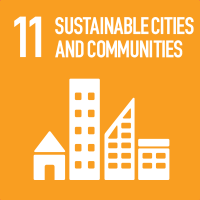Studying at the University of Verona
Here you can find information on the organisational aspects of the Programme, lecture timetables, learning activities and useful contact details for your time at the University, from enrolment to graduation.
Study Plan
This information is intended exclusively for students already enrolled in this course.If you are a new student interested in enrolling, you can find information about the course of study on the course page:
Laurea magistrale in Lingue per la comunicazione turistica e commerciale - Enrollment from 2025/2026The Study Plan includes all modules, teaching and learning activities that each student will need to undertake during their time at the University.
Please select your Study Plan based on your enrollment year.
1° Year
| Modules | Credits | TAF | SSD |
|---|
1st foreign language2nd foreign languageStrategic management applied to international markets
Financial Statement Analysis
History of international trading
2° Year activated in the A.Y. 2024/2025
| Modules | Credits | TAF | SSD |
|---|
1st foreign language (international markets)| Modules | Credits | TAF | SSD |
|---|
1st foreign language2nd foreign languageStrategic management applied to international markets
Financial Statement Analysis
History of international trading
| Modules | Credits | TAF | SSD |
|---|
1st foreign language (international markets)| Modules | Credits | TAF | SSD |
|---|
Legend | Type of training activity (TTA)
TAF (Type of Educational Activity) All courses and activities are classified into different types of educational activities, indicated by a letter.
Strategic management of tourism and cultural business (2023/2024)
Teaching code
4S02580
Academic staff
Coordinator
Credits
9
Language
Italian
Scientific Disciplinary Sector (SSD)
SECS-P/08 - MANAGEMENT
Period
I semestre (Lingue e letterature straniere) dal Sep 25, 2023 al Dec 22, 2023.
Courses Single
Authorized
Learning objectives
The course aims to provide a series of interpretative and practical tools for the management of cultural organizations (museums, theaters, libraries, festivals) and hotel businesses, with particular reference to the situation of Italy in the global tourism market. At the end of the course, the students will be able to identify the main market trends in cultural motivated tourism, as well as the institutional variables and the managerial guidelines suited to cultural organizations and hospitality businesses.
Prerequisites and basic notions
None
Program
Module 1
1. The specificities of the cultural sector The interpretative perspective / The cultural sector. The most recent evolution / The role of technology / Cultural enterprises, cultural industries and creative enterprises / The debate on State intervention / The issue of accessibility 2. Cultural enterprises The theoretical framework / The actors of the system / A vision overall The impact of the health emergency on the cultural sector
3. Culture and local development The territorial dimension and cultural tourism / From the industrial district to the evolved cultural district / UNESCO sites / UNESCO creative cities / European capitals of culture / The Italian Capitals of Culture
4. The managerial toolbox for culture/ Historical factors of distancing culture from management Strategic planning / Cultural demand and audience development activities / Participatory planning / Institutional communication and Annual Reports / Project management in the cultural field / Performance indicators / Economic impact assessment
5. New technologies The impacts of technology in the cultural sector / The Internet / Social media / Mobile devices / Virtual reality and augmented reality / Gamification / Modeling and 3D printing / The future in the present: Internet of Things, Big Data and Artificial Intelligence
6. Financing of the cultural sector The reasons for reflection / The issue of sustainability / The balance of management / Volunteering / The sources of financing / Baumol syndrome and State intervention -
The hotel business in the tourism system - Hotel businesses and the process of production and provision of the service - The strategies of hotel companies - The basic elements of hotel management: brand, management, structures - Marketing policies in hotel companies - Quality and customer satisfaction in the hotel sector - A map concept for the quality of the service - The balancing of demand and production capacity and the pricing policies - The organization and management oper activity of the hotel business
Module 2 Third sector and cultural voluntary service at the service of culture and for the common good
Study materials: Solima L., Management per l'impresa culturale, Carocci Editore, Studi Superiori, Rome, 2018
Della Corte V., Hospitality management, Cedam - Wolters Kluver, 2020
Bibliography
Didactic methods
Teaching modalities
The teaching modalities consist of lectures dedicated to the transmission of basic notions, together with cases, examples and some testimonials. Thanks to the e learning platform, regulatory texts and additional learning materials are provided. Additional optional materials are proposed through the social platform (closed group).
For non-attending students, the teaching methods consist of supporting the teacher in studying the manuals. Any further updates will be made available.
The content of the textbooks and lessons as well as of the materials uploaded to the platform is adherent to the program.
Learning assessment procedures
A written examination with open and precise questions will be carried out to assess:
- knowledge of concepts,
-ability to apply knowledge,
-appropriate use of the technical language.
Evaluation criteria
The evaluation criteria are therefore the following: -level of knowledge; - ability to apply knowledge; -language skills.
Criteria for the composition of the final grade
The final grade is expressed in 30/30 and is obtained by adding up the evaluations in the single answers during the interview.
Exam language
Italiano



